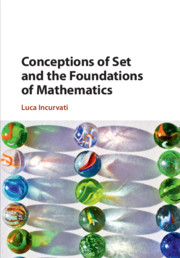Book contents
6 - The Stratified Conception
Published online by Cambridge University Press: 09 January 2020
Summary
The chapter considers attempts to modify the Naïve Comprehension Schema according to syntactic notions and in particular the technical notion of stratification used in Quine's New Foundations. This and related theories (such as New Foundations with Urelemente) are examined and their philosophical underpinnings discussed and assessed. It is argued that, contra what has often been suggested in the literature, one can describe a conception of set – the stratified conception – which is well motivated whilst incorporating the idea that the pathological properties are those whose syntactic expression does not satisfy the stratification requirement. However, it is argued that this conception is best seen as a conception of objectified properties or extensions rather than as a conception of sets as combinatorial collections. Understanding New Foundations and cognate systems as theories of objectified properties leads to a further development of the diagnosis of the set-theoretic paradoxes offered in the first chapter and allows one to deal with some of the standard objections to set theories based on stratification.
Keywords
Information
- Type
- Chapter
- Information
- Conceptions of Set and the Foundations of Mathematics , pp. 160 - 183Publisher: Cambridge University PressPrint publication year: 2020
